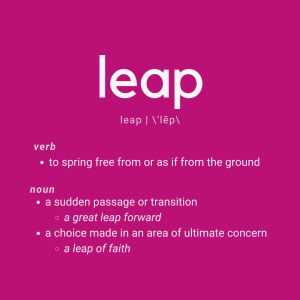The beginning of the school year holds a tiny bit of magic. It’s the same magic that can be found at the beginning of a story – a good one with a beginning, middle, and an end. The arc of this good story has a magnetism that pulls you toward it, asking you to climb in and shape how you want it to unfold.
I have been talking with friends and colleagues about what they look forward to at this time of year. Whether they work as college professors, urban planners, retirees, marketing executives, laboratory assistants, high school students, or psychotherapists, each person connects to the fresh start and new stories that begin each September.
There is a common theme this year: staying focused and working with increased effort.
I like helping people move toward their goals and build what they envision, so I asked a friend who is currently a high school junior how she’ll know when her extra effort starts paying off. While I admit I asked this to help her think beyond the immediate targets of good grades and college applications, this question pulled the emergency brake on her train of thought.
At first she was stunned into silence. Then, “You mean how do I know if working harder is working? I… I don’t know. It just should – right?”
As she looked at me, I could see a cloud of anxiety sweep across her eyes. I could hear the echo of what we have all said, either to ourselves or others, “You just need to focus and work harder – that’s the key to success,” or, “you’re just not working hard enough – that’s your problem.” While improved focus, consistent effort and hard work are key elements in any success, they are rarely the whole story.
To quell her emerging panic, I said, “Don’t overthink it. Just ask yourself how you’ll know if your effort is useful. If it works and it doesn’t cause more problems than it prevents, keep doing it. If, over a reasonable length of time, you don’t get the results you want, reconsider your strategy. Recalibrate and adjust your plan. Increased effort alone doesn’t necessarily yield better results. Stay connected to what you are trying to create.” She blinked and the temporary anxiety in her eyes was replaced by imagination.
She started to talk about what was important about working hard and what she wanted from it. It was dawning on her that she had more control of this situation than she had realized. We discussed the data she could use to tell whether her plan was working – things like time, tenacity, creativity, joy, misery, play, insight, collaboration with others, satisfaction, and long-term learning. She understood she didn’t have to consider all of these things simultaneously every day, but keeping any of them in mind could help keep her enthusiasm going and help her narrate her own experience.
She started to think about how she wanted to feel as well as what she wanted to do. She started to imagine what it might be like if she made it to June and was able to look back and say, “yah, that was a good year.” My friend was beginning to see the benefit of shaping her own story.
My wish for everyone this September is that no matter your occupation – high school student, surgeon, gardener, painter, engineer, philosopher, banker, or chief of all things important – is that you make use of the surrounding momentum. How will you know when your work is working? How will you know when you are shaping the arc of your story to feel satisfied and fruitful and solid?
If you can imagine now how you will feel when your effort works, then come summer, when you have finished yet another school year, another project or another task, you will see that the magical beginnings of your enthusiasm helped you create a story that carried you through to the end.





